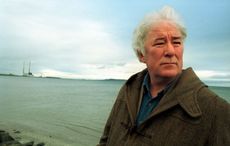Kyung-Wha Kang, Assistant Secretary-General for Humanitarian Affairs and UN Deputy Emergency Relief Coordinator told those gathered at an emergency meeting of the United Nations Human Rights Council six days ago. Far away, I begin the mental mathematics. Adding it up, I know for sure only this about Gaza - children are dying.
The news comes fast and furious, twenty-four hours a day. Mainstream media. Social media. Mixed-up media. From their early morning studios, Starbucks in hand, the "experts" weigh in, all the while equivocating their way out of circumstances they cannot comprehend. How could they? How can we? We, with our children who fall asleep at night under the non-threatening whirr of a ceiling fan or with the sound of a New York audience laughing at the Jimmy Fallon show.
The other day, I heard one member of the mainstream media criticize another for not providing enough context in its coverage. I wonder how much context would suffice. For some of the children in Gaza, the dead children, they knew only the context of innocent lives under siege, the sounds of bombs dropped from F16 fighter jets, the stench of smoke from piles of rubble smoldering where their houses used to stand. What do babies know of context?
Context. From the Latin 'Contextus" - interwoven, connected, or united.
I remember reading a book about Northern Ireland and realizing I am probably a Child of The Troubles, even though I was always, by nothing other than luck, in the right place at the right time. At a safe distance. I know the dull thunder-clap of a bomb, the tremble of our kitchen windows in its wake. I know the stench of smoke from rubble that once was a hotel, a supermarket, a restaurant. I know that based on black and white images flickering from black and white screens on living rooms in faraway places, strangers tried to understand the context of Northern Ireland, reducing it to tidy phrases about Catholics and Protestants, about calls for cease-fires, about heartbreaking hard-fought compromises that led, after three decades to a residual uneasy state we dare call "peace." I know about bombings and rubber bullets and booby-traps like the kind that killed three Israel soldiers at the end of July 2014. I know about the disregard for the lives of innocent people, like those killed in Omagh, a small market town in Northern Ireland, the weekend before a new school term began in 1998. Or yesterday, in Gaza, when Israeli shelling killed 15 children who had taken shelter in a United Nations-run school.
How do we put this in context? How do we keep on working, loving, worshipping as we were taught, and wishing for better days?
In May the Lord in HIs Mercy be Kind to Belfast, based on his interviews with the people who lived there, with Protestants and Catholics, Tony Parker makes an unsettling but astute observation that those born and brought up in Northern Ireland's complex context, have a mutual need to know, from the start, about a person’s background, so they can go ahead in the dialogue, in what may even become a lasting relationship, without saying the wrong thing, “the wrong word.” The schools we attended, our last names, the way we pronounce an “H” all became clues to help establish “who we are.” “Derry” or “Londonderry?” “The Troubles,” “the struggle, or “The Irish Question?” “Ulster” or “The Six Counties?”
On the words we use in the context of Gaza - a lexicon familiar to those from deeply troubled places - Soweto, Belfast, Sarajevo - there is no easy answer. I first heard poet, Damian Gorman, as his voice on a PBS channel filled my Phoenix living room some twenty years ago. He was reciting Devices of Detachment.
It was poetry. Spare and searing, the words suggested that the bombs and bullets, the “suspect incendiary devices” all too familiar in the 1980s Northern Ireland were far less deadly than the “devices of detachment, as dangerous as bombs” its people used to distance themselves from the violence, to cope. Aware of it, yet so removed. We were, all of us, very good at “detachment.”
We know how to cope, how to turn a phrase, a word, a hint, around and around until we have successfully distanced ourselves from the subject.
“We have coped too well, the heart is numb”
~ Damian Gorman
Through social media, I have come to know Damian Gorman, and when I need words, he somehow finds the right ones at the right time.
It was on his Facebook page in this traumatic and turbulent week on the Gaza strip, that Damian posted this poem:
For too many Palestinian and Israeli Parents (and for sharing)
July 23, 2014
Today I bury my child,
stop
And it was you who killed my child,
stop
I know that he wasn't the target,
stop
But that doesn't make him any less killed.
I know that "these things have contexts,"
stop
I have walked all around the contexts,
stop
I have tried unfamiliar angles,
stop
But they don't make him any less killed.
You ask, "what should we do - tell me?"
stop
And I say, "don't murder my child"
stop
"Walk as far away from that as you can'"
stop
"Move forward, away from that thing."
stop
And you say you are "just like" me,
stop
That we feel and we do the same things.
stop
I know what you mean, but we're not
stop
For today you don't bury your child
stop.




Comments